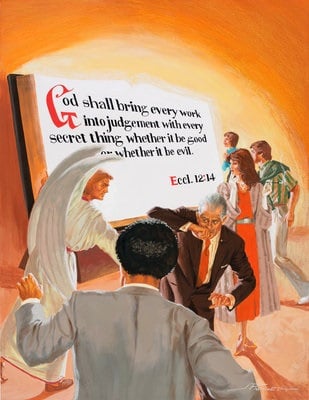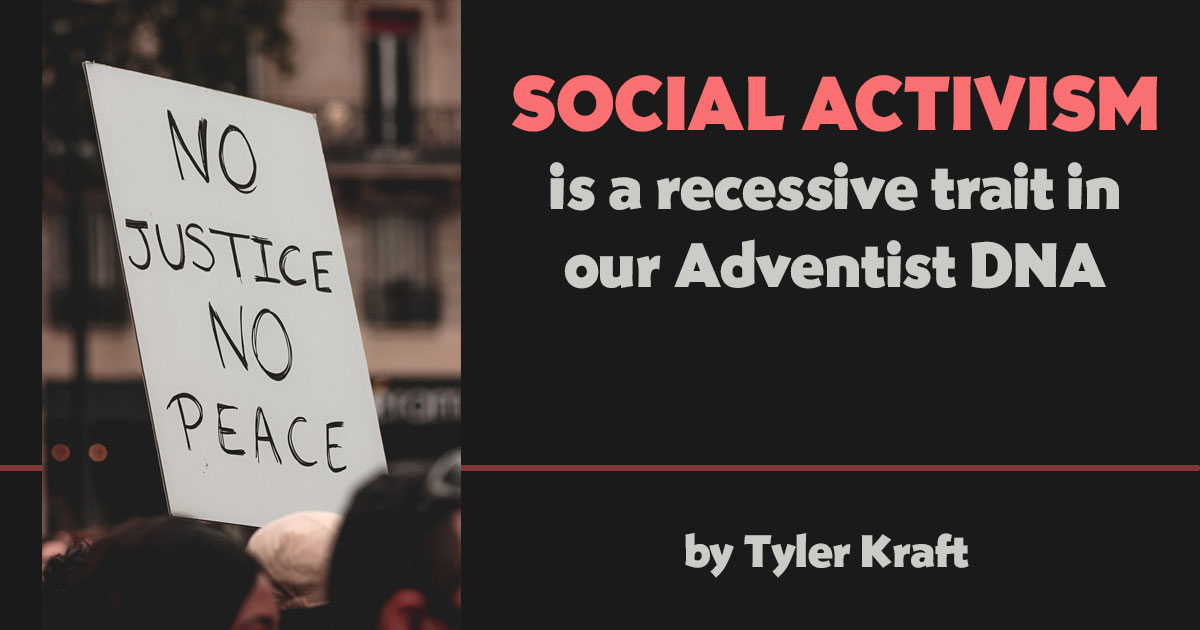 June 5, 2025
June 5, 2025
 DAILY BIBLE READING
DAILY BIBLE READING
 Genesis 50 – Reconciliation and Hope: Joseph’s Final Journey
Genesis 50 – Reconciliation and Hope: Joseph’s Final Journey
 A dignified farewell, healing forgiveness, and trust in God’s promise
A dignified farewell, healing forgiveness, and trust in God’s promise
══════════════════════════════════════════════
 Bible Text – Genesis 50 (KJV)
Bible Text – Genesis 50 (KJV)
1 And Joseph fell upon his father’s face, and wept upon him, and kissed him.
2 And Joseph commanded his servants the physicians to embalm his father: and the physicians embalmed Israel.
3 And forty days were fulfilled for him; for so are fulfilled the days of those which are embalmed: and the Egyptians mourned for him threescore and ten days.
4 And when the days of his mourning were past, Joseph spake unto the house of Pharaoh, saying, If now I have found grace in your eyes, speak, I pray you, in the ears of Pharaoh, saying,
5 My father made me swear, saying, Lo, I die: in my grave which I have digged for me in the land of Canaan, there shalt thou bury me. Now therefore let me go up, I pray thee, and bury my father, and I will come again.
6 And Pharaoh said, Go up, and bury thy father, according as he made thee swear.
7 And Joseph went up to bury his father: and with him went up all the servants of Pharaoh, the elders of his house, and all the elders of the land of Egypt,
8 And all the house of Joseph, and his brethren, and his father’s house: only their little ones, and their flocks, and their herds, they left in the land of Goshen.
9 And there went up with him both chariots and horsemen: and it was a very great company.
10 And they came to the threshingfloor of Atad, which is beyond Jordan, and there they mourned with a great and very sore lamentation: and he made a mourning for his father seven days.
11 And when the inhabitants of the land, the Canaanites, saw the mourning in the floor of Atad, they said, This is a grievous mourning to the Egyptians: wherefore the name of it was called Abelmizraim, which is beyond Jordan.
12 And his sons did unto him according as he commanded them:
13 For his sons carried him into the land of Canaan, and buried him in the cave of the field of Machpelah, which Abraham bought with the field for a possession of a buryingplace of Ephron the Hittite, before Mamre.
14 And Joseph returned into Egypt, he, and his brethren, and all that went up with him to bury his father, after he had buried his father.
15 And when Joseph’s brethren saw that their father was dead, they said, Joseph will peradventure hate us, and will certainly requite us all the evil which we did unto him.
16 And they sent a messenger unto Joseph, saying, Thy father did command before he died, saying,
17 So shall ye say unto Joseph, Forgive, I pray thee now, the trespass of thy brethren, and their sin; for they did unto thee evil: and now, we pray thee, forgive the trespass of the servants of the God of thy father. And Joseph wept when they spake unto him.
18 And his brethren also went and fell down before his face; and they said, Behold, we be thy servants.
19 And Joseph said unto them, Fear not: for am I in the place of God?
20 But as for you, ye thought evil against me; but God meant it unto good, to bring to pass, as it is this day, to save much people alive.
21 Now therefore fear ye not: I will nourish you, and your little ones. And he comforted them, and spake kindly unto them.
22 And Joseph dwelt in Egypt, he, and his father’s house: and Joseph lived an hundred and ten years.
23 And Joseph saw Ephraim’s children of the third generation: the children also of Machir the son of Manasseh were brought up upon Joseph’s knees.
24 And Joseph said unto his brethren, I die: and God will surely visit you, and bring you out of this land unto the land which he sware to Abraham, to Isaac, and to Jacob.
25 And Joseph took an oath of the children of Israel, saying, God will surely visit you, and ye shall carry up my bones from hence.
26 So Joseph died, being an hundred and ten years old: and they embalmed him, and he was put in a coffin in Egypt.
══════════════════════════════════════════════
 Introduction
Introduction
The final chapter of Genesis marks the conclusion of a compelling family saga filled with guilt, separation, forgiveness, and hope. Jacob’s death, Joseph’s response, and his reconciliation with his brothers offer profound insights into divine principles: honoring one’s parents, healing old wounds, and clinging to God’s promises—even in the face of death. This chapter not only brings a historical story to a close but also provides a vivid model of faith and grace.
══════════════════════════════════════════════
 Commentary
Commentary
1.A Respectful Burial for Jacob (verses 1–14)
Joseph lovingly falls on his father’s face, weeps over him, and kisses him—an expression of deep filial devotion. He arranges a respectful funeral: Egyptian physicians anoint Jacob’s body, the Egyptians mourn for seventy days, Joseph seeks Pharaoh’s permission, and then leads a massive procession back to Canaan for the burial. Bringing Jacob to the land of promise underscores how the patriarchs valued the hope of inheriting God’s promised land.
2.The Brothers’ Fear (verses 15–17)
After Jacob’s death, Joseph’s brothers are seized by fear. They worry Joseph might bear a grudge and punish them for their earlier cruelty. Out of desperation they say, “Your father commanded before he died, ‘Forgive your brothers…’ ” Whether Jacob truly said this or if it’s their own plea, their appeal reveals how guilt can weigh on hearts for years.
3.Joseph’s Response—Forgiveness from God’s Perspective (verses 18–21)
Joseph’s reply stands as one of Scripture’s most profound statements on forgiveness:
“Do not be afraid of me. Am I in the place of God? … You meant evil against me, but God meant it for good.”
He recognizes that God’s plan transcended the wrong done to him. His reaction is not only nobly human but deeply spiritual—he reassures his brothers, promises to provide for them and their children, and speaks kindly to them.
4.Joseph’s Final Words—A Glance into the Future (verses 22–26)
Joseph remains in Egypt, lives to see Ephraim’s great-grandchildren, and reminds his family of God’s promise: God will one day bring Israel out of Egypt into the land He swore to Abraham, Isaac, and Jacob. He makes them swear to carry his bones when that time comes—an enduring testimony of his faith, pointing forward to the eventual return to Canaan. His death, anointing, and placement in a coffin are not an end but a witness to hope.
══════════════════════════════════════════════
 Summary
Summary
Genesis 50 brings together key biblical themes: honor, forgiveness, responsibility, and faith. Joseph mourns his father with dignity, fully reconciles with his brothers, and dies confidently trusting in God’s faithfulness. The story closes with a forward look at what God will still accomplish.
══════════════════════════════════════════════
 Message for Us Today
Message for Us Today
-
Honor your parents—beyond death. Gratitude, respect, and loyalty are enduring values.
-
Forgive wholeheartedly—even if you have been hurt. Joseph teaches that genuine forgiveness trusts God’s overarching plan rather than human justice.
-
Cling to God’s promises—especially when they seem unfulfilled. Joseph believed God would deliver His people and lived (and died) in that hope.
 God’s purposes far exceed our wounds. What people intend for evil, God can turn for good.
God’s purposes far exceed our wounds. What people intend for evil, God can turn for good.
~~~~~  ~~~~~
~~~~~

 June 1 – 7, 2025
June 1 – 7, 2025
 WEEKLY SPIRIT OF PROPHECY READING
WEEKLY SPIRIT OF PROPHECY READING
 Ellen G. White │ Patriarchs and Prophets – Chapter 8
Ellen G. White │ Patriarchs and Prophets – Chapter 8
 After the Flood
After the Flood
 Read online here
Read online here
══════════════════════════════════════════════
 Introduction
Introduction
The flood was over. The waters receded, and the ark came to rest. But life after the flood was not simply a continuation—it was a complete new beginning. In Chapter 8 of Patriarchs and Prophets, we read how God not only saves but also leads, protects, and grants new promises. Noah, the faithful preacher of righteousness, stands as a shining example of obedience, gratitude, and trust—even in times of deep uncertainty. The world that awaited him was no longer the same—but God had not changed: faithful, powerful, and full of grace.
══════════════════════════════════════════════
 Commentary
Commentary
1. Faith in the Test (The Months in the Ark)
The five months spent in the ark were a hard trial of patience. Without knowing when the waters would recede, Noah remained steadfast. He did not doubt God’s leading. Faith carried him and his family through the darkness.
Lesson: True trust is shown in the silence of waiting. God’s hand guides even when we cannot see it.
2. The Ordered Return (The Birds and Patience)
Noah sent out the raven and the dove in search of a sign. But he did not act impatiently—he left the ark only when God explicitly commanded him.
Lesson: Even when we see signs, our decisions must be guided by God’s word, not by circumstances alone.
3. The First Altar (Gratitude and Sacrifice)
Before he built a home for himself, Noah built an altar for God. He offered clean animals—an expression of his faith in the coming sacrifice of Christ.
Lesson: True gratitude first honors the One who gave everything—even when our own resources are scarce.
4. God’s Response: The New Covenant
God smelled the “pleasing aroma” of the sacrifice and declared a new covenant: there would be no more global flood. The rainbow became the sign of this covenant.
Lesson: God uses visible signs to assure us of His invisible faithfulness. His promises are for all generations.
5. A Changed Earth, A Changed Lifestyle
The earth was completely altered—landscape and ecosystem. God permitted the eating of meat as an adaptation to the new reality.
Lesson: God’s care and instructions adapt to human situations, but His moral will remains unchanged.
6. Hidden Treasures and Judgment
The flood buried not only bodies but also human pride, wealth, and idolatry. From this came coal, oil, and ore—evidence of God’s judgment but also of His mercy.
Lesson: What man abused, God transformed into a testimony of His power and justice.
7. Future Judgments: Fire Instead of Water
As water once cleansed the earth, so fire will purify it at the end. Volcanoes, earthquakes, and disasters are forerunners of Christ’s return.
Lesson: God’s warnings are not meant to frighten but to call us to repentance—His grace protects His people.
8. God’s Protection for His Own
Just as Noah was safe in the ark, God’s people will be protected by His power at the end. Psalm 91 becomes a personal promise amid chaos.
Lesson: The safe place is not geographical, but spiritual—under God’s wings.
══════════════════════════════════════════════
 Summary
Summary
After the flood, Noah stepped into a radically changed world. But in the midst of death and destruction, his heart remained focused on God. His obedience, gratitude, and faith make him a model for all generations. And God responded with grace, promise, and protection. The rainbow stretching across the sky and throne remains the eternal sign: God’s covenant stands. And though future judgments will come, He will preserve those who trust in Him.
══════════════════════════════════════════════
 Message for Us Today
Message for Us Today
In a world again marked by uncertainty, disasters, and moral decay, God calls us to live like Noah: with faith, obedience, and gratitude. When all that we know is shaken, we can rest assured:
God’s hand is still at the helm.
His covenant still stands. The rainbow in the sky is more than a natural phenomenon—it is a testimony of His faithfulness. And just as Noah was preserved in the midst of judgment, so we too can know:
The righteous are safe—not because they are strong, but because they trust in God.
So then, let us build altars of gratitude before we build houses. Let us give before we take. Let us believe before we see.
For the Lord, your Redeemer, says:
“My kindness shall not depart from you.” (Isaiah 54:10)
Source: https://fulfilleddesire.net/5-06-2025-genesis-chapter-50-believe-his-prophets/

 June 5, 2025 | When the Light Comes Back On | HEART ANCHOR
June 5, 2025 | When the Light Comes Back On | HEART ANCHOR How God Illuminates Your Darkness – Even When You Don’t Understand It
How God Illuminates Your Darkness – Even When You Don’t Understand It Luke 6:44
Luke 6:44 Devotional & Story
Devotional & Story Thoughts on the Devotional
Thoughts on the Devotional What Does This Mean for You?
What Does This Mean for You? Suggestions for Today
Suggestions for Today What is your current darkness?
What is your current darkness? Tonight, pray this sentence:
Tonight, pray this sentence:
 (
(


